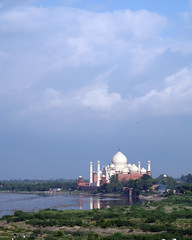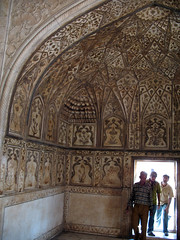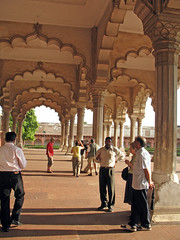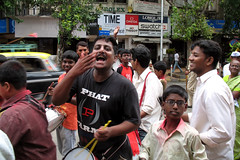

Today was the last day of the Ganpati festival where people took their Ganpatis (idols shaped like Ganesh, the elephant-headed god) and cast them into the sea. This lasted all day with various vans and carts heading towards the sea loaded with clay Ganpatis and whole families. This carried on into the night with bright lights, music and many more firecrackers.

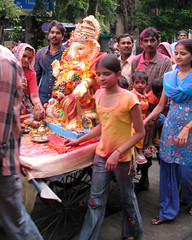
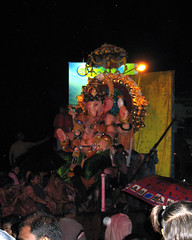
The rest of the week involved getting reacquainted with the city - from the area around the house to downtown. The restaurants, the hanging gardens and Marine Drive and the planetarium (complete with the school tour from hell). Then there was The Club. Every day, my aunt and uncle go to the prestigious Willingdon club where my aunt plays cards and my uncles plays snooker. As a child, we used to go to use the open-air swimming pool. Some years my father actually became a temporary member so we could go more often and children were never allowed in the clubhouse itself. Now I could finally see what all the fuss was about. After a visit to the nearby museum, we arrived for a swim as guests. I haven't swum in years, but it all came back instantly. This time, instead of sitting around the pool afterwards, I was thrilled to finally see the inside of the club. The bar was a modern area with plasma tvs and sweet, sweet air conditioning. Meeting other members of the club reinforces the exclusivity. You may think that a members sports club in a country where many people survive on less than $1 a day would be affordable for a young professional such as myself. I think it's safe to say Emma and I were gob-smacked to find membership cost upwards of £10,000 a year!
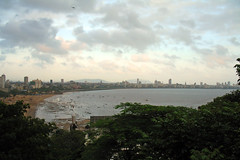
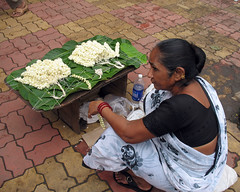
One of our tasks for the week was to sort out an excursion. Even though I had been to India many times before, I'd still never been out of the state of Maharashtra. This would change as, combined with the power of the internet and the abundance of low-cost airlines we sorted out a few days in Delhi and Agra.
After experiencing Ryanair, I didn't have high hopes for the Indian variety, but Kingfisher actually puts KLM to shame. New planes, seatback tv screens even on internal flights, good quality food (with metal cutlery) and good crew. Upon arriving in Delhi we were met by our host, my father's nephew Indivar who is an academic at a local university. We piled into his small Tata car and set out across Delhi. After leaving the airport, it immediately became clear that while it was obviously still bonkers, Delhi was a lot less intense and mad than Bombay. The university itself is set in - what to westerners - appears to be a massive amount of wild countryside.

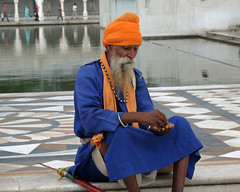
Around Indivar's university-provided accommodation was a family of peacocks, several of which made an appearance. Indivar showed us around the sites, including a Sikh temple and an iron pillar that despite being constructed in 1600-odd years ago hadn't rusted. Sadly, the "magic" reason seems to have been unravelled. We enrolled on an official whistle-stop tour of some sights - including the red fort and Ghandi's tomb that were conducted at break-neck speed.
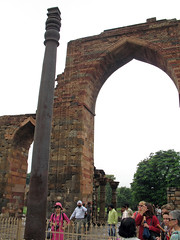

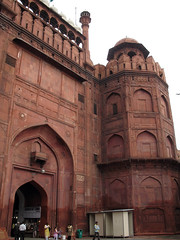
The trip to Agra would be by train. We had booked first class, but I don't think Emma was ready for what that entailed. As we arrived at the station early in the morning it was already a hive of activity. After finding our platform we discovered it was littered with travellers carrying more baggage that could feasibly fit into the train, hawkers selling their wares and the odd rat running around. As we boarded the train, all thoughts of a western-style first class didn't so much fade from our heads as they were crushed with a mallet. It was like economy on a plane, but without padding on the seats, broken recline mechanisms, tray tables that fell down every five minutes, a lack of A/C and the only entertainment consisted of the sellers that would come through the carriage every so often selling dubious-looking food and drink. After a few hours we arrived in Agra and took a taxi to our hotel for the stay, The Taj hotel. As we entered the hotel, it was like walking into an oasis. Clean white marble, gentle A/C and a good shower. The hotel was called the Taj View and as we reached our room we were happy to discover the hotel lived up to its name.


After an hour or so to enjoy our first decent shower in ten days, we headed back out into the madness and heat to take a rickshaw to the Taj. Rickshaws are awesome fun - it's basically a small moped with a 3-(small) person seat at the back. This means they have the turning circle of a unicycle and combined with the driving discipline meant the we were frequently in danger of falling out as the driver pulled off another ridiculous cornering move.
As we arrived at the drop-off I was amazed that India's best-known tourist attraction and one of the wonders of the modern world can only be accessed by small back streets. We had a few hundred yards to walk through a bazaar full of merchants all of whom didn't seem to want to take no for an answer. As we approached the entrance a new nuisance became evident in the "local tour guides" offering to give us a narrated tour. If you've seen Slumdog Millionaire, this isn't too far from the truth. After paying about 20 times more to enter the grounds than Indians (surely I should have had half off?) we were suddenly in a different world. Yes, there were lots of tourists and their guides, but the oppressiveness of the small streets had given way to a large court yard and as we walked towards the archway the famous view of the gleaming marble shrine came into view. Somehow marble manages to change colour in different lights in a way few other materials can manage. The monument itself seemed to gleam.
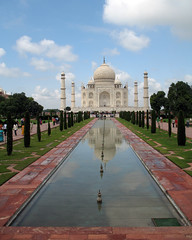

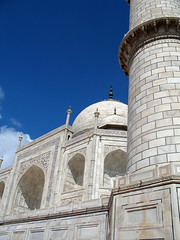
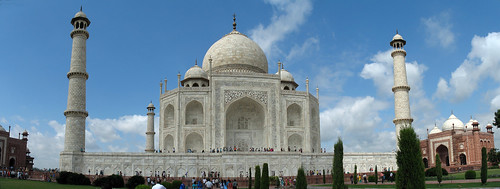
Emma and I left my parents to their guide (you have to give in to them else they will follow you round the whole thing - it's easier just to give them 50p and take their narration). After slowly walking around and through the Taj Mahal the sun had shifted and the monument took on a golden appearance as we headed out. The incredible thing about the Taj Mahal is that it is situated in the middle of an industrial city. In fact, from the Taj View, the Taj appears nestled among towers, chimneys and factories, but when you in the boundaries of the Taj you simply can't see any of that - it's as if the Taj Mahal grounds are surrounded by trees. The view across the river is to the proposed site of the black Taj Mahal that was planned as the mausoleum of Shah Jahan - the man who built the Taj Mahal as a mausoleum to his wife. Unfortunately he was deposed and imprisoned in the nearby Agra Fort by his son. Our trip took us on to the Fort and then back to the hotel for an awesome world-cuisine buffet.
